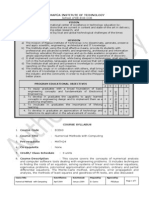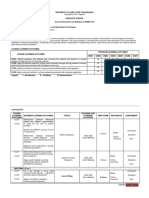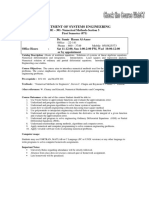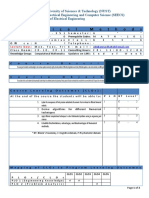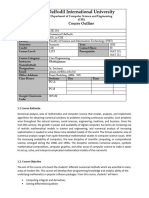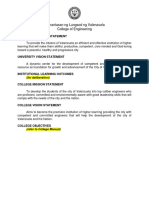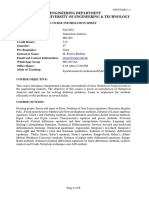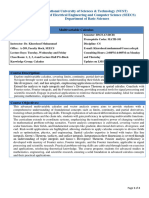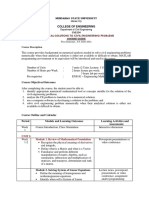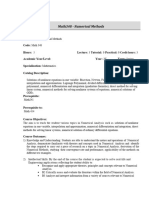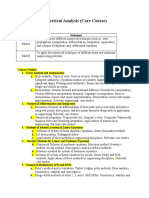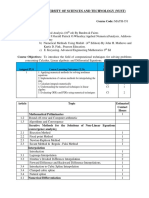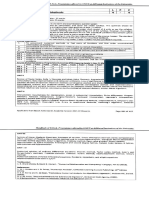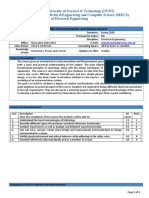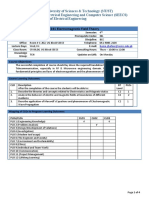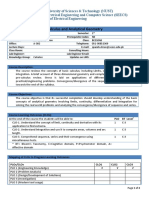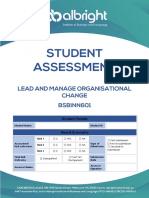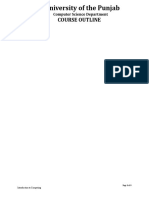0% found this document useful (0 votes)
145 views3 pagesNumerical Methods Course Overview
This document provides information about the Numerical Methods course offered at National University of Sciences & Technology. The course is a 3 credit hour course offered in the 6th semester to undergraduate students in the Department of Basic Sciences. The course aims to teach students various numerical techniques for solving nonlinear equations, differential equations, interpolation, integration and other mathematical problems relevant to engineering. Assessment is based on quizzes, assignments, midterm exams and a final exam. Topics covered include iterative methods, interpolation, numerical differentiation and integration, and solving ordinary and partial differential equations numerically.
Uploaded by
Skiwordy MediaCopyright
© © All Rights Reserved
We take content rights seriously. If you suspect this is your content, claim it here.
Available Formats
Download as PDF, TXT or read online on Scribd
0% found this document useful (0 votes)
145 views3 pagesNumerical Methods Course Overview
This document provides information about the Numerical Methods course offered at National University of Sciences & Technology. The course is a 3 credit hour course offered in the 6th semester to undergraduate students in the Department of Basic Sciences. The course aims to teach students various numerical techniques for solving nonlinear equations, differential equations, interpolation, integration and other mathematical problems relevant to engineering. Assessment is based on quizzes, assignments, midterm exams and a final exam. Topics covered include iterative methods, interpolation, numerical differentiation and integration, and solving ordinary and partial differential equations numerically.
Uploaded by
Skiwordy MediaCopyright
© © All Rights Reserved
We take content rights seriously. If you suspect this is your content, claim it here.
Available Formats
Download as PDF, TXT or read online on Scribd
/ 3




